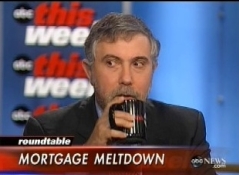Mohammed Elshamy/Anadolu Agency/Getty Images Spotify’s Value Sky Rockets Following Going Public On Tuesday, the Spotify opened up to the New York Stock Exchange at $165.90 a share, which puts the company’s value at $29.5 billion. According to TechCrunch , their “estimated” value translated to that of $23.5 billion, so it’s safe to say the biggest streaming platform surpassed expectations. Spotify began trading through “direct public offering,” which allowed current shareholders to sell an existing number shares directly to stock market investors rather than issuing new stock. This allowed Spotify shareholders, including employees, to sell early. Spotify’s founder Daniel Ek explained why they took this approach in a blog post . “Spotify is not raising capital, and our shareholders and employees have been free to buy and sell our stock for years. So while tomorrow puts us on a bigger stage, it doesn’t change who we are, what we are about, or how we operate. This is why we are doing things a little differently,” he wrote in part. “[…] Spotify has never been a normal kind of company. As I mentioned during our Investor Day, our focus isn’t on the initial splash. Instead, we will be working on trying to build, plan, and imagine for the long term. Sometimes we succeed, sometimes we stumble. The constant is that we believe we are still early in our journey and we have room to learn and grow.” Last month, the company said it had 159 million monthly active users, 71 million of which are premium subscribers. According to MarketWatch , Spotify closed the day at $149.95 per share, which brings the valuation of the company to $27 billion.
Read more here:
Doing Numbers: Spotify Valued at Nearly $30 Billion Following Their NYSE Debut




























